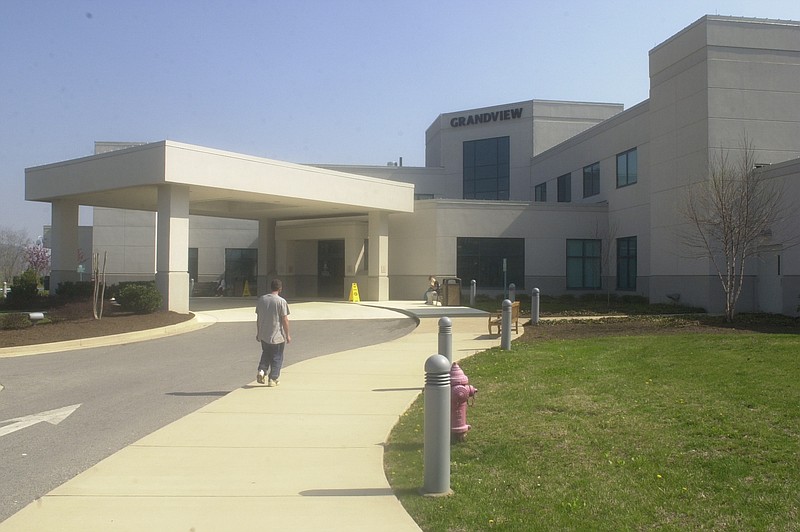Sometimes the number is 13, sometimes 12. Occasionally, the count is pegged a little lower by Democratic candidates for state offices. The number is not consistent.
What they're talking about is the number of rural hospitals they say have closed because the state chose not to accept federal Medicaid money to cover the health insurance costs of a certain group of Tennesseans who don't have employee health care or make too much to be covered by TennCare, the state's program for low-income individuals.
Unfortunately, the charge is political, which means it has only a hazy association with the truth.
Several rural hospitals have closed in Tennessee since 2010, the year the Affordable Care Act was passed by a partisan Democratic Congress that sought no Republican help in writing its bill and got no GOP votes for its passage. But saying those hospitals all closed because Tennessee chose not to expand its Medicaid program by accepting federal money is just not true.
Let's face it. What smaller city would not want to have its own hospital, fully staffed with the best doctors and nurses, all the latest technology and the ability to do any kind of procedure a patient might need? Full-service hospitals employ a number of people, make a city attractive for people who might want to move there and are handy for any emergency.
In the last half century, though, some hospitals in the state have opened that ultimately were not sustainable. That's because small-town hospitals, in fact, are not likely to have a doctor for every specialty, the latest and greatest equipment, and the population to sustain them.
Over time, equipment becomes outdated, physician specialists and nurses are impossible to recruit, and fewer patients choose those small hospitals for their care. They look elsewhere, to larger, regional medical centers, even if it means a drive of 30 minutes to an hour.
If the state expanded Medicaid, would some people with health insurance use those rural hospitals? You bet. But the tiny increase in patient census would not be enough to keep the hospital viable.
And since the Affordable Care Act was passed as the nation was slowly coming out of the Great Recession, businesses, including hospitals, were learning to do more with less, learning to get by with fewer employees and learning that technology could help them be more efficient.
Indeed, more services that used to be inpatient now can be done on an outpatient basis, and telehealth and telemedicine have made the remote delivery of health care services possible.
But Democrats, even as they know the truth, want to paint the closings as the fault of Tennessee, under Gov. Bill Haslam and a Republican legislature.
Take a recent television advertisement by Democratic gubernatorial candidate Karl Dean. It cites nine hospitals closing, with "a lack of Medicaid expansion playing a major role."
But of those facilities the ad cites, according to the Nashville Tennessean, three of the communities experienced a hospital merger, change of ownership or change of services at a hospital campus, but remain fully operational with inpatient and outpatient care. Two others no longer have inpatient services but still provide outpatient services and a 24-hour emergency room.
In Coffee County, with two hospitals three miles apart, one medical center purchased the other, and the one that remains offers all of the services the two did, and has since expanded. Yes, one hospital has fewer beds than two did, but the two never staffed the number of beds for which they were licensed.
Dean's ad also lists Starr Regional Medical Center in McMinn County as one of the closed facilities. But its Athens campus continues as a full inpatient operation, and its Etowah center offers outpatient services and a 24-hour emergency center.
Locally, the former Grandview Medical Center in Jasper is no longer an inpatient facility but - now as Parkridge West Hospital - provides a 24-hour emergency center, outpatient services and inpatient behavioral health services at adjacent Parkridge Valley West.
In truth, economic realities require new business models of many of the rural hospitals, which were created for altruistic reasons but cannot survive as they are.
The Tennessee legislature, recognizing that, even passed the Tennessee Rural Hospital Transformation Act in the spring. As such, the Tennessee Department of Economic and Community Development is to work with rural hospitals to create plans "in assessing viability and identifying new delivery models, strategic partnerships and operations changes that enable the continuation of needed health care services in rural communities." In short, the state is helping rural hospitals reinvent themselves.
Nobody in Tennessee wants a thriving hospital in any community, urban or rural, to close. But an unsustainable business cannot turn around with the help of a small number of patients with insurance through the state expanding Medicaid. It sounds good as a talking point in a political campaign, but it doesn't hold water. Not for Dean and not for any Tennessee Democrat.
